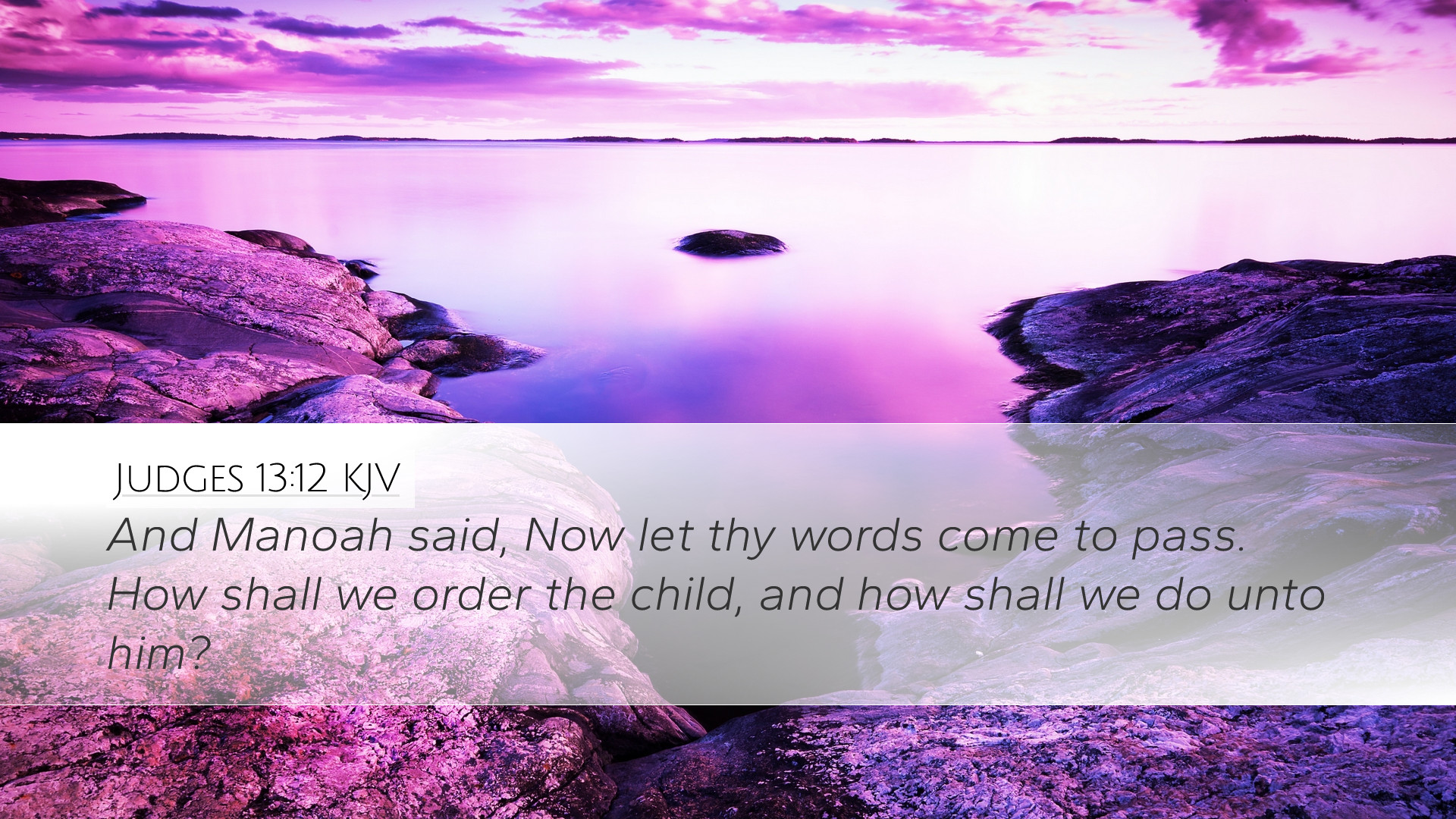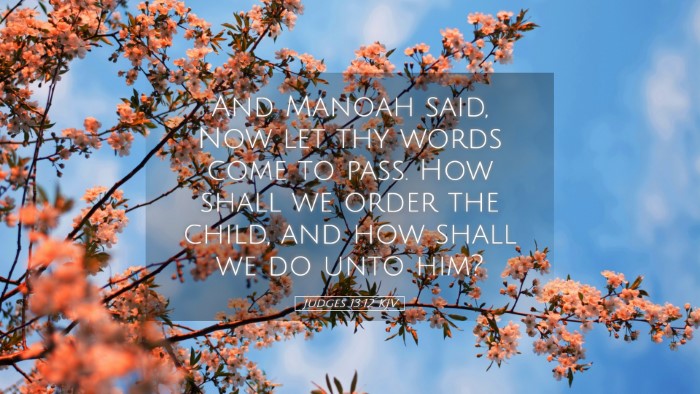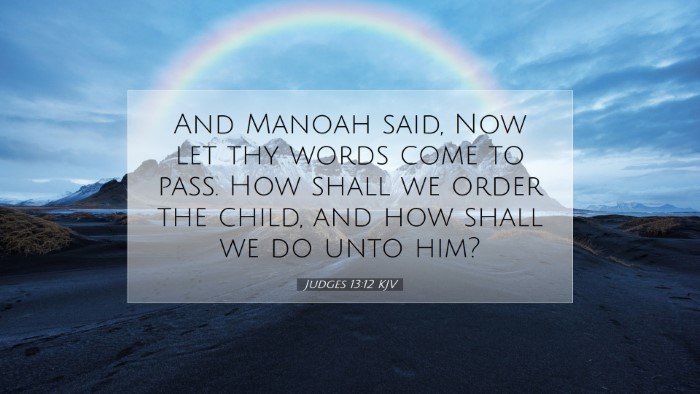Bible Commentary on Judges 13:12
Verse Context: Judges 13:12 states, "And Manoah said, Now let thy words come to pass: how shall we order the child, and how shall we do unto him?" This verse is pivotal as it encapsulates the inquiry of Manoah, the father of Samson, following the announcement of their son's birth and destiny.
Understanding the Text
This verse emerges in the narrative surrounding the miraculous announcement of Samson's birth to his parents, Manoah and his wife, by the angel of the Lord. It highlights Manoah's response to the revelation and his yearning for guidance in raising a child destined for greatness.
Insights from Matthew Henry
Divine Revelation: Matthew Henry points out that Manoah's question reflects an earnest desire to understand the will of God concerning his son. His inquiry shows a humility and recognition of the divine intervention in their lives.
Parental Responsibility: Henry emphasizes that Manoah's concern indicates the importance of parental guidance and dedication in child-rearing, especially when a child is set apart for God’s purposes. He notes that the responsibility of obedience to God's commands is fundamental to nurturing the child’s spiritual journey.
Insights from Albert Barnes
Preparation for Leadership: Albert Barnes suggests that this verse illustrates a significant biblical theme: the preparation of leaders by divine means. Manoah, sensing the gravity of the angelic message, seeks specific guidelines on nurturing the child who is to deliver Israel from the Philistines.
Questions of Faith: Barnes comments on the nature of Manoah's inquiry as one that reflects a deep faith intertwined with apprehension. It shows the human tendency to seek clarity in the face of divine promises. This resonates with many readers’ experiences of faith where assurance is sometimes clouded by uncertainty.
Insights from Adam Clarke
The Role of the Angel: Adam Clarke elucidates the significance of the role of the angel in this narrative. He notes that the angel’s message was not merely an announcement but a call to action. Manoah's question reveals a proactive approach, seeking insight into how to align his actions with God’s plans.
Specificity in Divine Direction: Clarke further underscores the desire for specifics in divine instruction. He points out that while divine promises are often grand and reassuring, the faithful believer is often left seeking practical wisdom on how to implement these promises. This resonates with the pastoral concern of how to apply spiritual truths in practical contexts.
Theological and Practical Implications
- God’s Sovereignty in Child-rearing: This verse highlights the sovereignty of God in the process of raising a child who is chosen for a divine purpose. Those involved in ministry and adjacent fields should approach child-rearing with the recognition that children belong to God and are entrusted to parents and guardians for His glory.
- The Importance of Inquiry: Manoah's inquiry serves as a model for all believers. It encourages a culture of questioning and seeking guidance from God in our endeavors, particularly regarding significant life decisions.
- Parental Guidance and Spiritual Formation: The verse stresses the essential role of parents in nurturing the spiritual lives of their children. Pastors and teachers should encourage parents to take an active part in the spiritual questions of their children, reflecting God’s design in familial relationships.
- Faith and Action: Manoah's response is a testament to the relationship between faith and action. True faith involves a readiness to act upon God’s word, demonstrating that believers are to follow through on divine revelations with commitment and intentionality.
Conclusion
Judges 13:12 serves as a profound reminder of the intricate interplay between divine revelation and human responsibility. As we reflect on Manoah's earnest plea for guidance, may it inspire pastors, theologians, and scholars to foster environments where questions are welcomed and divine wisdom is sought in the raising of the next generation. The narrative underscores the need for ongoing engagement with the divine will as believers navigate the challenges of life and faith.


